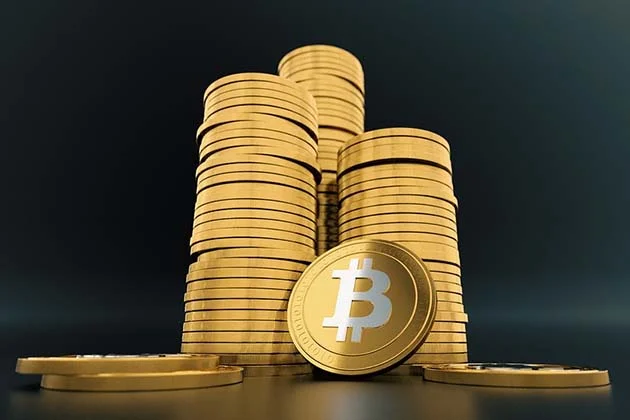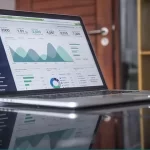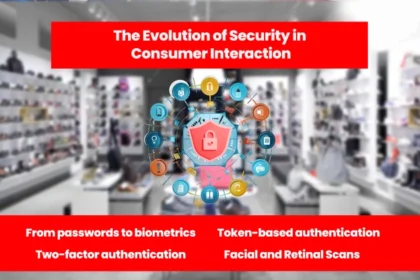Bitcoins are a new kind of digital currency that doesn’t rely on banks or governments to manage transactions or issue money. Bitcoins are created through a process called “mining,” and they can be used to purchase goods and services from anyone who accepts them. Bitcoins have been gaining in popularity in recent years as more people learn about them and begin using them. Because they aren’t regulated by banks or governments, bitcoin are seen as a way to avoid traditional currency restrictions and fees. However, this also makes bitcoins a target for criminals and hackers. Here are a few tips to help protect your bitcoins:
1. Use Cold Storage
Just as you would not leave your life savings in a regular checking account, you should never store any significant amount of bitcoin on an exchange. In fact, if there are more than two Bitcoins at one time stored on an exchange, that’s considered risky behavior. It is possible to get hacked or for the site to go out of business and your coins would be lost. Among some popular cold storage options are Bitcoin IRA companies that allow you to store your coins offline in a secure location. These companies will give you a physical or digital Bitcoin wallet to store your coins. Another cold storage option is to use a hardware wallet, such as the Trezor or Ledger Nano S. Hardware wallets are physical devices that store your Bitcoin and other cryptocurrencies offline.
2. Use a Strong Password
The most obvious, and still the most easily overlooked. It may seem unbelievable, but some people still use passwords like “123456”, “1111”, or their date of birth. When you create an online account anywhere, you should use a strong password. This is especially true for Bitcoin wallets and exchanges. A weak password can easily be hacked, so make sure to use a long and complex password that is difficult to guess. Your password should include numbers, upper and lower case letters, and symbols. To make it easier, use password managers such as LastPass, which are extremely safe and assist you in creating strong passwords and remembering them while posing minimal risks.
3. Set Up 2FA
Some people say that if you want to make sure your Bitcoin investment is safe, the best way to do this is by using 2FA. 2FA means two-factor authentication and it is a security measure that requires more than just a username and password to log in. This can be done through either a text message or an email and it will send a second password which must be entered in order for you to log into your account. This means that even if someone knows your password, they won’t be able to get into your account without the 2FA code.
4. Never Reveal How Many Coins You Own
When it comes to safeguarding your bitcoin, one of the most important things you can do is keep your information private. Revealing too much about yourself can put your coins at risk, so it’s important to be careful about what you share online. The same goes for how many coins you own – it’s best not to announce your holdings to the world.
5. Have Multiple Mail Accounts
Using multiple mail accounts can help protect your bitcoins in a number of ways. For starters, if you have one account that is compromised, the thieves will not be able to access your other accounts. Additionally, if you use different email addresses for different purposes (e.g., personal and business), it can make it more difficult for someone to track all of your activities. Finally, using a different email address for your bitcoin transactions can help you keep track of them more easily.
6. Use a VPN
A virtual private network (VPN) is another great way to protect your bitcoins. Companies have been formed to evaluate the Bitcoin blockchain on a continuous basis. They store a great deal of information about what is going on on the network, such as the IP addresses of the stakeholders. The goal is to be able to deduce as much data about the parties involved in a Bitcoin transaction as possible. You should never expose your IP address on the Web to avoid this. Use a VPN service to remain anonymous online. A VPN encrypts all of your internet traffic and routes it through a secure server, making it difficult for anyone to track your activity. This is a great way to keep your bitcoins safe when you are using public Wi-Fi, for example.
7. Have Backups of Your Wallet and Encrypt Them
If you are using a desktop or laptop to store your Bitcoin, it is important to make sure you have backups of your wallet. If your computer is hacked or gets stolen, you will lose all of your coins if you don’t have a backup. You can easily create backups by encrypting your wallet and then saving the file to a USB drive or cloud storage. This way, you will always have a copy of your wallet in case something happens to your computer.
8. Use Antivirus
It’s also important to use antivirus software when you are dealing with Bitcoin. Viruses can easily steal your coins if you are not careful, so it is important to have a good antivirus program installed on your computer. There are many good free antivirus programs available, such as Avira and AVG, so there is no excuse for not using one. In addition, make sure you keep your antivirus software up-to-date so that you are protected against the latest threats.
Using Bitcoin can be a great way to protect your money, but only if you take the necessary precautions. These tips will help you keep your bitcoins safe and secure. From using a VPN to using multiple mail accounts, there are plenty of ways to keep your coins safe. Follow these tips and you can rest assured that your bitcoins are in good hands. We hope you found this article helpful.











